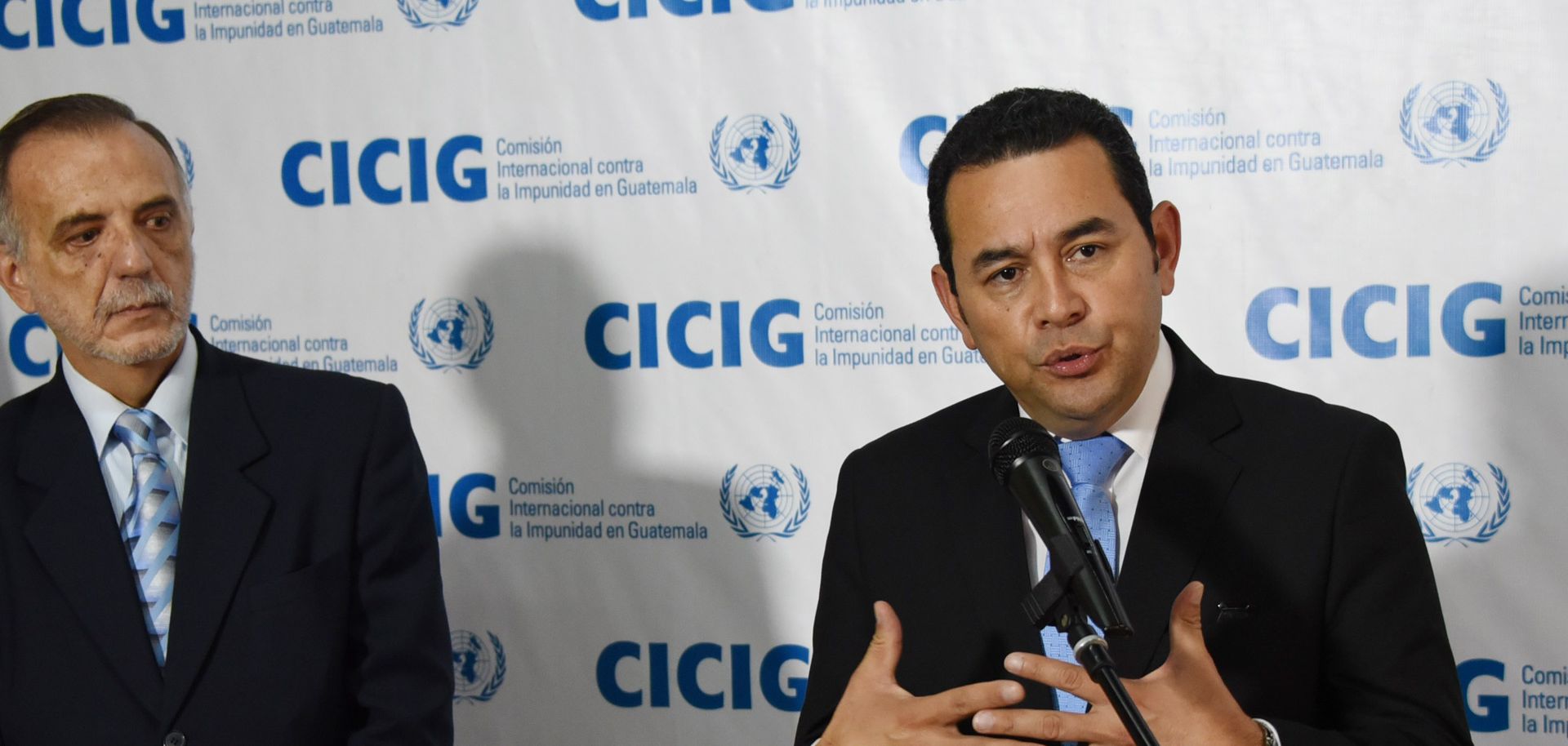ASSESSMENTS
Guatemala Bristles Under Scrutiny
May 12, 2016 | 21:48 GMT

(JOHAN ORDONEZ/AFP/Getty Images)
Summary
Unease is growing among Guatemala's political elite. In April, the country's government agreed to extend the mandate for the International Commission Against Impunity in Guatemala (CICIG) until 2019. The CICIG, a U.N. investigative body with heavy backing from the U.S. government, conducted an investigation that led to the resignation of Guatemalan President Otto Perez Molina in September 2015. Perez Molina stepped down after the CICIG found evidence of his involvement in a smuggling and tax evasion network. The effects of the case, which pitted the U.S.-backed group against members of the political elite entrenched in Guatemala's government, continue to be felt in the country seven months later as political disagreements over the initiative increase.
With another three years at its disposal, the CICIG could expand the scope of its inquiries. And deeper investigations could yield greater repercussions for Guatemala. Depending on how many people are implicated, for instance, future inquiries could have negative consequences for business. In addition, the investigations may harm the political relationship between Guatemala and the United States. However, similar anti-corruption initiatives are not likely to catch on quickly in other Latin American states. Even if some domestic constituents in these countries favor anti-corruption commissions, organized resistance from national governments wary of interference in their judicial systems would probably hamper their implementation.
Subscribe Now
SubscribeAlready have an account?
